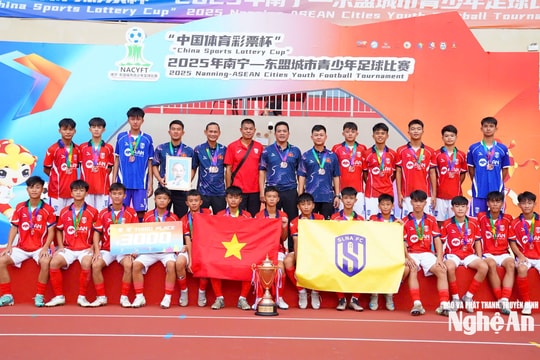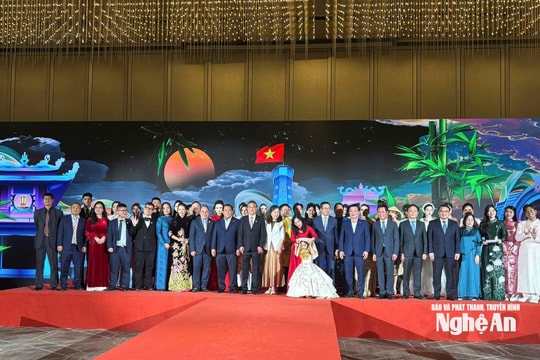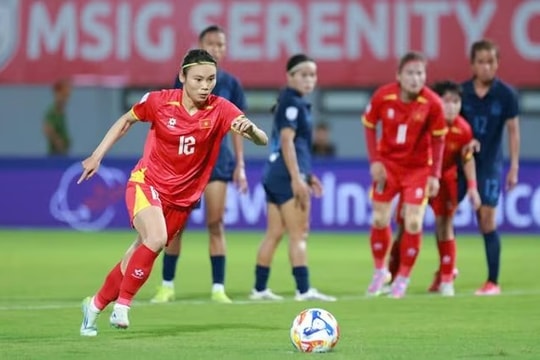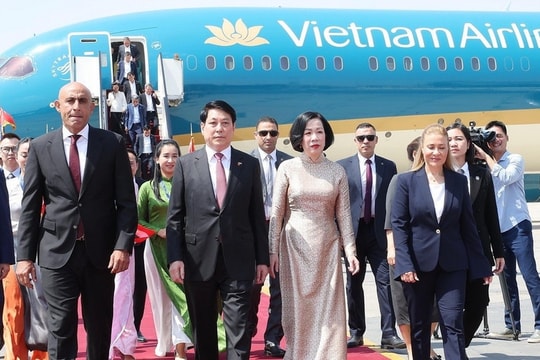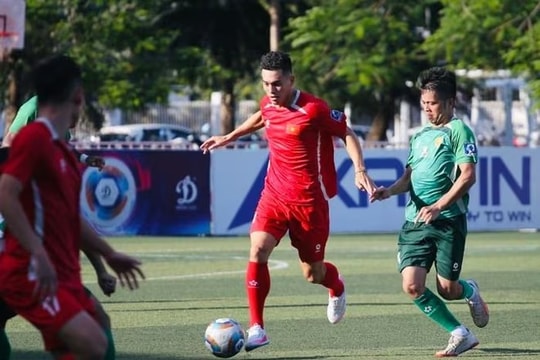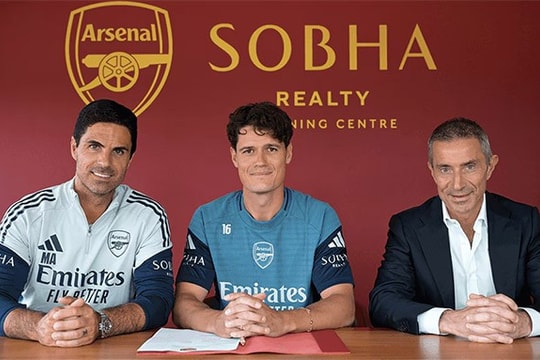During his official visit to Vietnam, Mr. Trump showed great interest in Asia.
The US President's official visit to Hanoi to Vietnam shows that the US administration has many issues of concern in Asia.
 |
| US President will come to Hanoi for an official visit to Vietnam. Photo: AFP. |
"Mr. Trump's visit to Southeast Asia, including Vietnam and the Philippines, is an important sign that US policy in Asia is not just about the issue in Northeast Asia, which is attracting all the President's attention," Mr. Brian Harding, a researcher at the Center for American Progress, told VnExpress.
The White House announced on October 16 that US President Donald Trump will arrive in Hanoi for an official visit to Vietnam on November 11, after attending the Asia-Pacific Economic Cooperation (APEC) forum in Da Nang.
According to Mr. Harding, when coming to Hanoi, Mr. Trump can highlight the East Sea issue, which the US President expressed great concern about during his election campaign last year. The defense relationship between the two countries can also be raised during this visit.
As a presidential candidate, Mr. Trump argued that the United States needed to take a tougher stance toward China on a range of issues, including its activities in the South China Sea. However, after taking office, Trump’s Asia policy has focused almost exclusively on resolving the North Korea crisis and reducing the bilateral trade deficit with China.
Mr. Harding said that President Trump now seems to have realized that bowing to China on trade issues to win its support in resolving the North Korea crisis is not a good strategy to deal with Beijing.
Therefore, he predicted that the official visit to Hanoi would be a good opportunity for Mr. Trump and Vietnamese leaders to share views on many issues, including handling relations with China and bilateral trade.
Expressing optimism about bilateral cooperation between Vietnam and the US, Associate Professor, Dr. Cu Chi Loi, Director of the Institute of American Studies, Vietnam Academy of Social Sciences, said that President Trump's visit to Hanoi shows his intention to increase cooperation with Vietnam. Regarding the situation in the East Sea, Mr. Loi mentioned that the US has recently stepped up its freedom of navigation patrols in this area.
From the perspective of a long-time regional observer, Professor Carl Thayer, Australian Defense Force Academy, University of New South Wales, assessed that this trip of Mr. Trump shows that the US will remain committed to engaging in the Asia-Pacific and continue to support important frameworks, including APEC, ASEAN and the East Asia Summit (EAS).
According to Mr. Thayer, the US President not only reaffirmed his commitment to allies such as Japan and South Korea, but also to Washington's partners in the region. Before his trip, Mr. Trump will welcome the leaders of Singapore, Thailand and Malaysia to the White House.
However, Mr. Gregory Poling, an expert at the Center for Strategic and International Studies (CSIS), USA, predicted that the two main priorities of the US President during this visit to Vietnam are to discuss the North Korea issue and discuss bilateral trade.
Regarding the East Sea issue, Mr. Poling said that the US government does not have a strong policy, except for the Pentagon, so it will not prioritize discussion. "I think the US President will mention the East Sea issue, but this is not the top issue on the agenda," he commented.
"To have deeper discussions on the East Sea with the participation of the US, the role of partners such as Japan, Australia and Vietnam is needed, similar to the ARF Security Forum in July," said Mr. Poling.
Professor John Karaagac, Indiana University, said that Mr. Trump's trip to Asia is the most important trip related to Washington's foreign policy. The US president can maintain his predecessor Barack Obama's commitment to Asia and even strengthen it. He also emphasized the importance of the order of Mr. Trump's visits, first to Japan, America's strongest partner, followed by South Korea and then China.
"Mr. Trump's visit to Beijing could be similar to former President Richard Nixon's visit. The US may aim to increase pressure on North Korea," said Mr. Karaagac.
Professor Alexander Vuving, Asia-Pacific Center for Security Studies, predicts that the US President will try to persuade countries, including applying pressure, to isolate North Korea together. However, Washington is not in a good position after withdrawing from the Trans-Pacific Partnership (TPP), while Beijing is increasing its influence with the Belt and Road Initiative.
Vietnam is an important partner of the US in many regional issues.
Professor Thayer said that the US President's decision to visit Hanoi shows that Washington considers Hanoi an important factor in regional issues, a partner that shares the same views with the US in many discussions.
He also noted that Vietnamese Prime Minister Nguyen Xuan Phuc was the first leader in Southeast Asia to visit the White House in May, at the invitation of Mr. Trump.
The main contents the US President and Vietnamese leaders are expected to discuss include a rules-based order in the East Sea, freedom of navigation and overflight, economic freedom based on international standards, and the non-proliferation of nuclear weapons on the Korean peninsula.
"In Hanoi, the US President and President Tran Dai Quang will likely issue a joint statement reaffirming their determination to strengthen the Comprehensive Partnership between the two countries. Key areas include trade cooperation, maritime security, defense and post-war issues," said Professor Thayer.
Agreeing with this opinion, expert Harding said that during Mr. Trump's visit, the two countries' leaders will discuss measures to reduce the bilateral trade deficit, which may include Vietnam purchasing defense equipment from the US.
Professor Karaagac assessed that the US President always connects bilateral military cooperation with regional security agreements. Therefore, he also connects bilateral trade issues and security issues.
According to Mr. Vuving, Vietnam should take advantage of the opportunity when Trump visits to promote the formation of a community fighting for international law in the East Sea. Vietnam needs to continue to strengthen bilateral relations with the US and other partners, and lobby neighboring countries to speak up in support of the Arbitration Court's ruling on the East Sea. In addition, Hanoi also needs to explore the possibility of establishing an economic bloc, including large and medium-sized countries in the region to counterbalance China's economic attraction.
"During this trip to Asia, if Mr. Trump fails to present a vision for US-ASEAN cooperation beyond the framework of 'together solving the North Korea problem', the US position in Southeast Asia will be precarious," Mr. Harding commented./.
According to VNE

